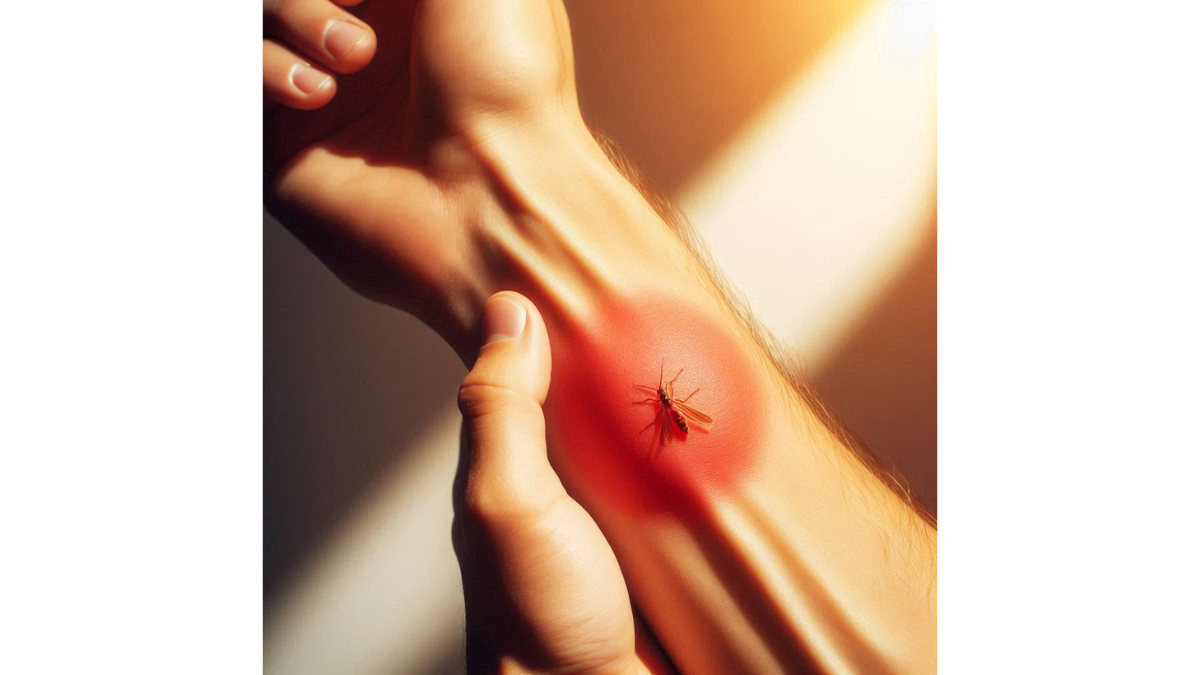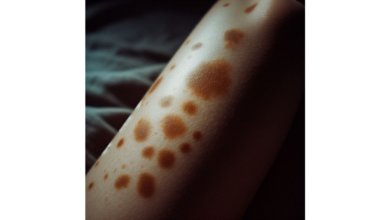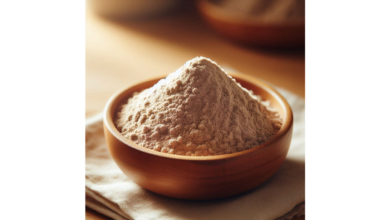8 Effective Ways to Deal with Mosquito Bite Allergies

8 Effective Ways to Deal with Mosquito Bite Allergies – Mosquito bite allergies can transform a delightful evening outdoors into a frustrating and itchy ordeal. If you’ve ever found yourself swatting away pesky mosquitoes while trying to enjoy a barbecue or a night under the stars, you might be all too familiar with the discomfort these tiny creatures can cause. It’s not just the irritating bites but the way the body’s immune system reacts that can leave you feeling miserable.
Why this Matters
Whether you live in a tropical area or simply enjoy spending time in your garden, knowing how to manage mosquito bites is essential. These allergies can lead to a range of responses, from mild redness to severe swelling. Understanding what causes these reactions is the first step in alleviating your discomfort and enjoying your outdoor adventures without fear of becoming a mosquito’s next meal. While we often think of mosquitoes simply as nuisances, they can invoke significant biological reactions in sensitive individuals. “I remember one summer evening, my friends and I set up a picnic by the lake. I had forgotten my insect repellent and ended up being the target of every mosquito in the area. Not only did the bites swell up painfully, but the itching felt unbearable—definitely a lesson learned!”
What Will You Learn?
In this guide, you’ll discover 8 effective ways to deal with mosquito bite allergies. You’ll learn about the causes and symptoms associated with these allergies, as well as proactive steps you can take to avoid being bitten in the first place. Furthermore, we will delve into various home remedies and over-the-counter treatments that can help alleviate your symptoms if you do get bitten. Here’s a sneak peek at what’s ahead:
- Understanding Mosquito Bite Allergies: What triggers these responses in your body?
- Prevention Tips: Essential strategies to keep mosquitoes at bay.
- Home Remedies: Natural ingredients you likely already have at home to relieve itching and swelling.
- Essential Oils: Harnessing nature’s goodness to soothe your skin.
So grab a cup of tea, settle in, and let’s dive into the world of mosquito bite management. By arming yourself with knowledge and remedies, you can reclaim your outdoor enjoyment, bite-free!
Understanding Mosquito Bite Allergies
As we delve deeper into the topic of mosquito bite allergies, it’s crucial to understand the underlying factors that lead to such reactions. For many people, the aftermath of a mosquito bite can be far more uncomfortable than the actual bite itself.
Causes of Mosquito Bite Allergies
So, what exactly causes an allergy to mosquito bites? When a mosquito bites, it injects saliva into your skin. This saliva contains proteins that can trigger your immune system’s response as your body mistakenly identifies these proteins as harmful invaders. Here are some key components to consider:
- Immune System Response: Your body releases histamines, which are natural chemicals that help protect your body from foreign substances. It’s this release that causes the allergic reaction.
- Sensitivity Levels: Individuals have varying sensitivity thresholds. While one person may experience mild irritation, another could suffer significant swelling and discomfort.
- Previous Exposure: An interesting point to note is that previous bites can sometimes cause the body to develop a more intense reaction over time. If you’ve been bitten multiple times, your body might exacerbate its defense mechanisms.
It’s not uncommon for people like yourself to initially dismiss these bites, but understanding the biology behind them can help you respond better in the future.
Symptoms of Mosquito Bite Allergies
Recognizing the symptoms is the next step to managing mosquito bite allergies. Symptoms can vary widely among individuals, but here are some of the most common signs you might experience:
- Redness and Swelling: This typically occurs around the bite area and can be quite pronounced in allergic individuals.
- Itching: The itching sensation is caused by the histamine release and can range from annoying to intolerable.
- Warmth: The affected area may feel warm to the touch due to increased blood flow.
- Blistering: In more severe cases, the bite can develop into blister-like spots, requiring immediate attention.
For instance, after a camping trip where I forgot my insect repellent, I noticed that even a small bite resulted in a big bump on my arm with intense itching. It was clear to me that my body was crying out in response to those little pests! Understanding these causes and symptoms will enable you to take proactive measures to both prevent and manage mosquito bite allergies effectively. So, let’s move on to prevention tips that will help keep those itch-inducing bugs at bay!
Prevention Tips for Mosquito Bites
Now that you have a clearer understanding of mosquito bite allergies, let’s turn our attention to prevention strategies. Being proactive is your best defense against those pesky little bugs. Here are two essential tips that can help you enjoy the great outdoors without the worry of attracting mosquitoes.
Use of Insect Repellents
One of the most effective ways to keep mosquitoes at bay is through the use of insect repellents. With a plethora of options available, choosing the right one can feel overwhelming. However, some key points to remember include:
- Active Ingredients: Look for repellents that contain DEET, picaridin, oil of lemon eucalyptus, or IR3535. Each of these ingredients has been proven effective in repelling mosquitoes. For instance, DEET remains one of the most popular choices due to its long-lasting effects.
- Application Guidelines: Always follow the manufacturer’s instructions. Apply the repellent evenly over exposed skin and clothing, but avoid areas like your eyes and mouth.
- Frequency of Reapplication: Depending on the product, you may need to reapply after a set period or after swimming or sweating. It’s a good idea to set an alarm on your phone to remind you!
I recall a family camping trip where, despite the stunning scenery, my brother forgot to put on insect repellent. He ended up with an all-too-familiar tale of swelling and discomfort. The lesson here? Don’t underestimate the power of a good repellent!
Wearing Protective Clothing
Alongside insect repellents, what you wear can also play a vital role in preventing mosquito bites. Here are some helpful tips for selecting the right clothing:
- Opt for Long Sleeves and Pants: When spending extended time outdoors, consider wearing long-sleeved shirts and long pants. Light-colored clothing can also make it easier to spot any unwanted guests!
- Tight Weave Fabrics: Choose fabrics made from tightly woven materials. Mosquitoes are less likely to bite through these compared to looser weaves.
- Specialty Clothing: There are also specially designed clothing options that come treated with insect repellent, offering an additional layer of protection, perfect for those who frequent wooded areas.
On a recent hiking trip, I was mindful of my clothing choices, opting for long sleeves and breathable pants. I barely noticed the mosquitoes, as they seemed deterred by my protective layers—a great reminder that prevention is key. With these tips in mind, you can take proactive measures to reduce your chances of mosquito bites, allowing you to enjoy the outdoors in peace. Next, let’s explore some effective home remedies for soothing any potential reactions from bites that do occur!
Effective Home Remedies for Mosquito Bite Allergies
Even with the best preventive measures in place, mosquito bites can still happen. When they do, having effective home remedies on hand is essential. Not only do these remedies help alleviate your discomfort, but they also utilize natural ingredients that are gentle on the skin. Let’s explore two popular options: calamine lotion and aloe vera gel.
Calamine Lotion
Calamine lotion has long been a go-to remedy for soothing irritated skin. Here’s why it can be particularly effective for mosquito bite allergies:
- Cooling Effect: Calamine creates a cool sensation when applied to the skin, which can provide immediate relief from itching and discomfort.
- Skin Protection: It contains zinc oxide, which helps in drying out blisters and can promote healing of the skin.
- Easy Application: Simply shake the bottle well, dab a cotton ball in the lotion, and apply it directly to the affected area.
I remember one summer afternoon when I hosted a small backyard gathering. Unfortunately, my friend forgot to apply repellent and ended up with several itchy bites. I quickly reached for the calamine lotion I kept in my medicine cabinet. Within minutes, she noticed the itching dramatically lessen, allowing her to enjoy the rest of the day without distraction.
Aloe Vera Gel
Aloe vera is known for its versatile healing properties, making it an excellent choice for alleviating mosquito bite reactions. Here’s how it can help:
- Natural Anti-inflammatory: Aloe vera possesses anti-inflammatory properties that can reduce redness and swelling following a bite.
- Moisturizing Benefits: It hydrates the skin, preventing it from becoming dry and flaky post-bite. This is particularly important when dealing with itchy skin!
- Application Tips: You can either use store-bought aloe vera gel or, if you have an aloe plant, simply cut a leaf and squeeze the gel directly onto the bite.
A personal anecdote comes to mind—after a particularly active day at the beach, I noticed a few red bites on my legs. I applied fresh aloe vera gel straight from the plant, and within moments, the relief was almost instant. The gel not only helped to calm the itching but also left my skin feeling refreshed and cool. Incorporating these home remedies into your care routine can provide significant relief from mosquito bite allergies. With calamine lotion and aloe vera gel at your disposal, enjoying the outdoors doesn’t have to be synonymous with suffering from itchy, uncomfortable bites. Next, we’ll look at some over-the-counter treatments that can further ease your symptoms!
Over-the-Counter Treatments for Mosquito Bite Allergies
When home remedies aren’t quite cutting it, over-the-counter (OTC) treatments can provide additional relief from the symptoms associated with mosquito bite allergies. Two popular options are antihistamine creams and hydrocortisone creams, both formulated to tackle itching and inflammation effectively. Let’s take a closer look at these options.
Antihistamine Creams
Antihistamine creams are a fantastic choice for quick relief from itching and redness caused by mosquito bites. Here’s why they can be particularly effective:
- Histamine Blockers: These creams work by blocking the histamine receptors on the skin, which reduces the itch sensation almost immediately.
- Targeted Relief: The localized application allows you to address specific areas, making it easier to find relief exactly where you need it.
- Variety of Brands: You’ll find many brands available at your local pharmacy, so look for creams labeled as containing diphenhydramine.
I remember camping out with friends at a beautiful lakeside spot. One of my friends reacted quite strongly to the mosquito bites, causing him noticeable discomfort. Thankfully, I had packed some antihistamine cream, and after applying it to his bites, the relief was practically instantaneous. He even remarked, “I didn’t think a little cream could make such a big difference!”
Hydrocortisone Creams
Hydrocortisone creams serve as another potent option for relieving mosquito bite irritation. Here’s why you might consider reaching for this treatment:
- Anti-inflammatory Properties: Hydrocortisone is a mild steroid that reduces inflammation, making it especially effective for swelling and redness.
- Dual Action: It not only alleviates itching but can also help in reducing irritation and promoting healing.
- Usage Guidelines: When using hydrocortisone cream, apply a thin layer to the affected area. It’s usually safe for short-term use but check with a healthcare provider if you have any concerns.
During a family picnic last summer, my cousin ended up with a painful bite on her ankle. I had some hydrocortisone cream in my first-aid kit, so I offered it to her. After a few minutes, she felt significant relief, allowing her to fully enjoy our day without being distracted by discomfort. Both antihistamine and hydrocortisone creams can be game-changers in managing mosquito bite allergies, offering fast-acting relief that helps you enjoy life to the fullest. Now that you know about these effective treatments, let’s explore the importance of maintaining clean surroundings to keep those pesky mosquitoes at bay!
Importance of Keeping Surroundings Clean
Having explored various treatments for mosquito bite allergies, it’s crucial to discuss an equally important aspect: maintaining clean surroundings. The environment where you spend time plays a pivotal role in reducing the number of mosquitoes, effectively minimizing the risk of bites.
Understanding Mosquito Habitats
Mosquitoes thrive in specific conditions and habitats. By being aware of what attracts these pests, you can take proactive measures to keep them at bay:
- Standing Water: Mosquitoes lay their eggs in stagnant water. Check your yard for areas like clogged gutters, bird baths, and plant pot saucers where water can accumulate.
- Debris: Piles of leaves, grass clippings, or other organic debris can create perfect breeding grounds. Keeping your yard tidy can significantly reduce mosquito populations.
- Vegetation: Dense shrubs and tall grass can offer refuge for mosquitoes during the day, so regular trimming and maintenance are essential.
For instance, after moving into my new home, I noticed an alarming number of mosquitoes lurking around my backyard. It took a couple of weekends of cleaning up overgrown bushes and removing any stagnant water, but soon the mosquito population dwindled, allowing me to enjoy evenings outside without being bitten.
Practical Tips for Maintaining Clean Surroundings
As you work to create a mosquito-free zone, here are some practical tips to help you maintain clean surroundings:
- Regular Clean-Ups: Designate time each week to inspect your yard for potential breeding sites. A quick check can make a world of difference.
- Proper Rainwater Management: If you have outdoor containers that catch rainwater, ensure they are emptied regularly or use mosquito-proof lids.
- Install Screens: If you enjoy venturing out onto patios or decks, consider putting up screens around these areas to help keep mosquitoes from getting too close.
- Natural Deterrents: Plant mosquito-repelling plants like citronella, lavender, and marigold around your yard to deter these pests naturally.
By taking the necessary precautions to keep your surroundings clean, you dramatically reduce the likelihood of attracting mosquitoes. A clutter-free environment allows you and your loved ones to enjoy outdoor spaces without the constant fear of bites. Now that you’re equipped with knowledge on cleanliness, let’s explore how essential oils can also play a role in soothing mosquito bite allergies while enhancing your surroundings!
Using Essential Oils to Soothe Mosquito Bite Allergies
As we continue to explore ways to manage mosquito bite allergies, essential oils emerge as a wonderful option. Not only do they provide soothing relief, but many also possess natural insect-repelling properties. Let’s take a closer look at two popular essential oils: tea tree oil and lavender oil, which can play a multifunctional role in your mosquito bite care.
Tea Tree Oil
Tea tree oil is often hailed for its impressive healing properties, making it an excellent choice for soothing mosquito bites. Here’s how it works:
- Anti-inflammatory: Tea tree oil contains compounds that help reduce inflammation, which can alleviate redness and swelling around the bite site.
- Antimicrobial Properties: This oil can prevent potential infections that may occur if the bite is scratched.
- Application Tips: Always dilute tea tree oil with a carrier oil (like coconut or jojoba oil) before applying it to the skin. A good rule of thumb is to mix one drop of tea tree oil with several drops of carrier oil, then gently massage the mixture onto the affected area.
I remember applying tea tree oil after a hike where I got several mosquito bites. I noticed how quickly the irritation subsided and how soothing it felt. The cooling sensation was a welcomed relief.
Lavender Oil
Lavender oil isn’t just for creating a calming atmosphere; it’s also highly effective for treating mosquito bite allergies. Here’s how it benefits you:
- Soothing Aroma: Lavender is well known for its calming effects, which can help ease your nerves after the discomfort of a mosquito bite.
- Anti-itch Relief: Like tea tree oil, lavender oil can also reduce itching and promote healing, thanks to its natural compounds.
- Simple Usage: You can apply lavender oil using the same dilution method as tea tree oil. Alternatively, adding a few drops of lavender oil to a warm bath can provide general relief as it soothes the skin and the mind.
During a relaxing evening at home, I decided to create a calming atmosphere by diffusing lavender oil. When I noticed a few bites on my skin, I applied a diluted mix directly to the area. Within moments, I felt a sense of relief wash over me—a reminder that lavender oil’s benefits extend well beyond just its lovely scent. Incorporating these essential oils into your first-aid routine not only helps soothe the irritation from mosquito bites but can also add a layer of natural relief. With their multifunctional properties, tea tree and lavender oils can empower you to handle mosquito bite allergies with ease. Now that you have an array of tools at your disposal, let’s wrap up what we’ve learned so far!
Seeking Medical Attention for Severe Reactions
While most mosquito bites result in mild discomfort, there are instances where reactions can escalate into something much more serious. Understanding when it’s necessary to seek medical attention is crucial for your safety and well-being.
Recognizing Severe Reactions
It’s essential to be able to identify the signs of a severe allergic reaction. While you might experience typical symptoms like redness and itching, watch for these red flags:
- Intense Swelling: If the swelling spreads significantly beyond the bite site, or if your entire limb or face starts to swell, this could indicate a serious allergic response.
- Difficulty Breathing: Wheezing, shortness of breath, or tightness in the chest are serious symptoms that warrant immediate medical attention.
- Rapid Heartbeat: A racing heart or palpitations might reflect a heightened allergic response that should not be ignored.
- Dizziness or Fainting: Feeling lightheaded or faint can be signs of an anaphylactic reaction, which requires urgent care.
I once witnessed my friend have a severe reaction to a mosquito bite during a summer camping trip. Within minutes, her arm began swelling drastically, and she started having difficulty breathing. We immediately sought help, and she was given antihistamines and monitored closely. It was a stark reminder of how quickly a situation can escalate.
When to Seek Help
Here are some guidelines to follow when considering whether to seek medical assistance:
- Immediate Action: If you notice severe symptoms like those mentioned, don’t wait—call for help or go to the nearest emergency room.
- Persistent Symptoms: If you experience ongoing swelling or itching that doesn’t improve with at-home treatments after a few days, reach out to your healthcare provider.
- Previous Reactions: If you have a history of severe allergic reactions to insect bites, it’s best to discuss a management plan with your doctor before heading into potential mosquito-heavy environments.
Additionally, carrying a medical alert item that notifies others of your allergies can be beneficial, especially if you’re in a setting where assistance may not be readily available. Recognizing the signs of severe reactions and knowing when to seek help are vital. Taking proactive measures can save lives and ensure that you and your loved ones remain safe during outdoor activities. As we conclude our discussion, remember that being informed and prepared is your best line of defense against mosquito bite allergies and their potential complications. Stay safe and enjoy the great outdoors!
You might also find this article helpful Building a Strong Foundation :Balanced Diet Enhances Your Health






One Comment